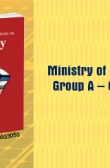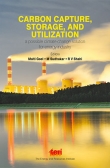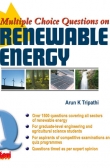Fuel Pricing in India
Book Details
Fossil fuel subsidies have been an issue of political contention in developing countries such as India. It is believed that subsidy reduction can enhance economic efficiency and reduce government fiscal deficits. If such a subsidy reduction is complemented by prudent tax collection mechanisms, it can enhance the revenue base. However, there is also a need to target subsidies appropriately as otherwise it can impact on the revenue base of the government.
Fuel Pricing in India gives a narrative on fossil fuel pricing issues, covering coal, oil, gas, and electricity. Value chain analyses of the sectors are given to show how taxes and subsidies flow in between different points of the sector. The macroeconomic modelling narrative of the study is also presented in the book. Based on the findings of each of the chapter, the book presents the possible future policy conclusions in the domain of tax- and subsidy-related reforms in India.
Target Audience
-
Researchers and Students
Table of Contents
Introduction
Coal Pricing: value Chain analysis by Jonathan Donald Syiemlieh, Swati Michelle D Souza, and Anjali Ramakrishnan
Introduction
History: Prior to Deregulation
Pricing Mechanism: Switch to Gross Calorific Value Pricing
Price Revisions
What Coal Consumer Pays and in Turn Receives?
Value Chain Analysis
Transportation of Coal
Problems in the Current Pricing Structure
Reforms
Subsidies and Taxes in Electricity Sector by Shyamasis Das
Introduction
Performance of the Distribution Sector—Cause of Worry
Estimation of Subsidy
Government Support to Fossil Fuel-based Power Generation
Broad findings
Concluding remarks
Pricing in India’s Oil and Gas Sector by Siddharth Singh, Saahil Parekh, and Madhura Joshi
Introduction
Historical Background of Pricing of Petroleum Products in India
Overview of Oil and Gas Sector
Fiscal Economics of Oil and Gas Sector
Value Chain of Taxes and Subsidies in Oil and Gas Sector
Integrated Macroeconomic Modelling Framework by Anandajit Goswami and Saahil Parekh
Introduction
Literature Review
Macro Model Findings by Anandajit Goswami
Introduction
Equity from Normative Perspective
Inter-temporal Value Chain Analysis of Sectors and CGE Model
Findings of Sectorally Integrated Quasi-dynamic CGE Model
Impact of Change in Value-added Tax from Coal Company to State Government during 2008–14
Impact of Change in Fiscal Subsidies in Oil and Gas on Macroeconomy during 2008–14
Impact of Change in Electricity Subsidies during 2008–14 on Macroeconomy
Policy Narratives and Intuitions Related to the Findings
Conclusion by Anandajit Goswami
Introduction
Appendix
Bibliography
Index
List of contributors
About the Editor
Keywords
You may also like...
-
 Books for MNRE Scientist-B (Group A - Gazetted) Exam
Regular Price 550.00
Special Price 550.00
Books for MNRE Scientist-B (Group A - Gazetted) Exam
Regular Price 550.00
Special Price 550.00
-
 Carbon Capture, Storage, and Utilization
Regular Price 950.00
Special Price 855.00
Carbon Capture, Storage, and Utilization
Regular Price 950.00
Special Price 855.00
-
DSM Action Plan for Tamil Nadu
-
 Multiple Choice Questions on Renewable Energy
Regular Price 395.00
Special Price 356.00
Multiple Choice Questions on Renewable Energy
Regular Price 395.00
Special Price 356.00


